Making a living by creating games
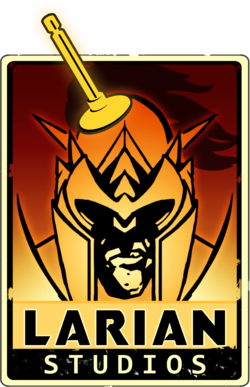
Hi, Habr!
My name is Artem Titov, I am a lead gameplay programmer at Larian Studios.
We have long wanted to share with you our experience in creating and developing computer games, but for a long time we could not decide where to start. Reflecting for a long time, we came to the conclusion that the first article should not be technical, but rather personal - and for this I translated to you a blog entry from one of our employees, made about a year ago. His story gives a very good idea not only about our studio from the side of games, what we create, but also shows in detail the personal aspect of the life of an ordinary studio employee passing through the ups and downs. I tried to make the most accurate translation, but nevertheless I could not get rid of Anglicisms and slang completely.
So, under the cut, the story of my colleague is 10 years old.
')
“You may not think of programmers as creative people, but nevertheless programming is a very creative profession. This is logical-oriented creativity. ”
John romero
For the last ten years I have been working at Larian Studios, creating games, and each one sold pretty well. And all my stubbornness could not prevent me from drawing a certain amount of experience over the past years. So instead of talking about Life, the Universe and everything else, I’ll talk about the difference between creating games and playing them, as well as how to cope with stress, inspiration, frustration and passion. But let's start from the beginning!
Games
Ketnet kick
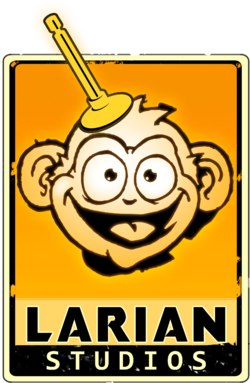
Educational game filled with mini-games. I was hired as a game programmer right after the university in 2005. During my trial period, I was asked to create 2 mini-games. Not too creative, but I got a huge experience in working with the engine, controls, animations, effects, and many other systems that are unique to game development. It all took me 3-4 months, after which I was finally transferred to a project, for which I was hired:
Divinity 2: Ego Draconis

My first big project. In fact, I was the only gameplay developer. I got to do a bunch of cool systems: Ground battles, Dragon Battle, Control and Guidance, Enemy AI, and Finding a path ... and even more cool things that I had never done before! Production gained momentum, more people were hired, and I became their lead. Toward the end, we had 2 teams of programmers: a team of the engine that dealt with everything you could SEE in the game, and a gameplay team that dealt with everything that you could DO in the game. The latter consisted of 4-5 people, headed by me.
There was also a design team that invented quests, stories, dialogues and locations, but the battles and role mechanics were mostly developed by Sven (big boss) and me. It was my first entry into the design and I started thinking about the details, inventing them, prototyping them, forcing people to try them, then to improve them on the basis of reviews, and moving on to the next snack.
In addition, it was the first 3D RPG that Larian made, and the whole studio was full of junior games, so we were quickly overwhelmed with a huge number of features and tasks required to create them, as well as bugs that appeared when we finally put everything together . I got into a managerial position, to which, most likely, I was not ready. We missed a few milestones, quarreled with the publisher (= an investor who was involved in marketing and distribution), and eventually we had to graduate earlier than we wanted.
The last months of production were a series of long weeks, when the main team, consisting of young developers, did everything they could to release something as good as time allowed us. It was a time when I had not met my wife and lived at home. It is possible to work until one o'clock in the morning every day, then another 15–20 hours on weekends only when you have no household duties. You get close to the people with whom you share trenches and fast food. Your friends are learning to hang out without you.
Divinity 2: Flames of Vengance
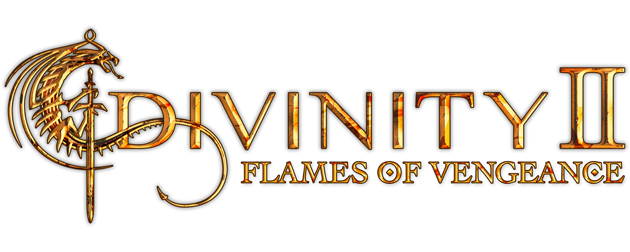
Addition to Divinity 2, where we learned from our mistakes and got a chance to improve. We recovered from a hard crunch and greatly improved the game.
Personally, I had to redo the whole balance and treasure distribution system. This means that I spent a month in Excel pages with lists, numbers and graphs, selecting values and creating algorithms, and I LOVED IT! This job is not for everyone, but for powergamer, like me, it was a real happiness.
The last act of addition was a massive battle of the dragon and the army, where you needed to defend the airship, carrying nuclear to the center of the enemy fortress. It was something. Epic and fun.
And it was the moment when I met my future wife, and we started dating.
Divinity 2: Dragon Knight Saga

We took everything we learned from the supplement and applied it to the original game. Collected and sold. People liked it and we got excellent marks. We finally had a product to be proud of, and that is the version that we wanted to release, if the money had not run out. This was a test for Sven's managerial skills (big boss), as a result of which Larian continued to live where others were drowning.
By this time I was at Larian for 5 years and I spent most of it on Divinity 2 and many of its versions. At some point it turned out that I created, prototyped almost every gaming system in the game. It will always be my main child. I will not pretend that this is the best RPG of the once created or that it is perfect in all respects, but the work on it will forever remain my second for the duration of the relationship. Oh, I'm really talking about the game, how about the individual?
Divinity: Dragon Commander

After the financial success of Dragon Knight, Saga Larian grew up, moved to a new office and started two new small projects, which in 5 years became Divinity: Dragon Commander and Divinity: Original Sin. Me and my team were assigned to Dragon Commander.
Do you remember that epic ending from Flame of Vengeance, which I mentioned a little earlier, the one with dragons and armies and explosions? ... but let's make the whole game like that! But let's add a jetpack to the dragon so that it can fly even faster and avoid fireballs and add multiplayer so that people can fight each other.
In short, this is the essence of Divinity: Dragon Commander. Not bad, huh?
This was followed by an avalanche of prototypes, where we tried to turn this cool concept into a 40-hour game. We had to turn cool into fun in the genre, which we ourselves invented. I pretty much expanded my programming skills, as hundreds of different mechanics and features were required of me. And although I was getting better at speeding programming, we still couldn’t find the perfect balance between Action and Strategy, Building and buying units, the Battle of the Dragon and the ranks of the units. It was clear that we had something very funny and unique in our hands, but it was not easy for us to finish it.
Means left, and we and did not come nearer to the finished product. Divinity: Original Sin at the same time grew in scale, and at this rate we could remain aground (we were an independent studio, and preferred to invest our money than have a publisher intervening in the development process) before at least one of the games came out. .
On a personal front, I “kicked” my parents out of the house and drove there with my girlfriend. I made her an offer in 6 months, and in one of the craziest years of my life, I got married, went on an epic honeymoon trip, bought a nice house (which really desperately needed repair) and conceived a child.
Sven (big boss) decided to temporarily suspend the development of Divinity: Original Sin and send the entire team to a single channel, the purpose of which was "To release Divinity: Dragon Commander as early as possible and in the best possible condition." By this time, constant prototyping has turned the project code into a silent horror. The next few months were possibly my darkest in Larian. The programmers of all the other teams were cut off from their projects to fix my mess. Many of these guys were young and worked very hard overtime to finish the game. I, on the contrary, had a very rich family life and could not afford to work 80 hours a week. I finished at 18:00, returned home to my wife for dinner, fed and bathed my daughter, put them to bed with my wife and turned on the computer at 10 in the evening to continue correcting bugs.
In the end, we finished and released the game, and it was well received, but I was squeezed dry.
Divinity: Original Sin
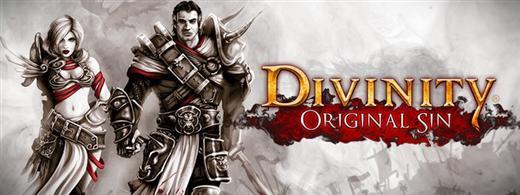
After Dragon Commander, I asked the boss to transfer me to work in 4/5 mode. To stay at home one extra day a week and take care of the child and monitor the repair.
This was followed by a long conversation about my future in the company and the future as a programmer. How to find a balance between my responsibilities at work and at home. Any other boss would probably have dismissed me or gave me an incredibly boring task, but Sven suggested that I leave programming for new programmers and join the design team as a scriptwriter.
I agreed and began to embody the quests created by our writers. I was no longer involved in the development of the combat system, the control, the AI, but suddenly I got a lot of pleasure from adding small details to the plot lines, from creating puzzles and my own small funny scenarios. I even began to think through small quests, completely from scratch based on my own hobbies. I was assigned to create a city in the game, and I added lives wherever I could. I added guards who play poker after the shift, and the player can join them. Created a quest where the player must go through the whole process of creating whiskey, ranging from collecting bottles for distillation to asking a fellow traveler in time to help make the drink old. I began to write prototypes of dialogues, where I discovered my hidden love of writing.
Of course, there was overtime work, but not comparable with what we did for Ego Draconis or Dragon Commander. We had a clear vision of what the game should be, and many experienced people to work on it.
The end result was a game that was very warmly received. Larian blossomed, my friends really played the game that I made, my dear people highly appreciated what I helped create. But most importantly: I re-ignited the spark in myself. And with it all aspects of my life improved.
Divinity: Original Sin: Enhanced Edition
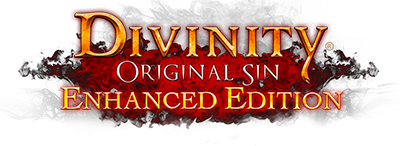
We read reviews, listened to players and made a list of (Hooray!) Improvements that we would like to add to the game. And we surprisingly well transferred the game to the console.
I had to improve the main story and remake the ending. I fixed bugs, polished quests and created systems that allow us to make the game even better. At the time of writing, the PC version has a rating of 94% ! The console version is at 88% (the console audience has always been difficult to satisfy). The game is mentioned along with other games, the budget of which was 20 times more.
Divinity: Original Sin 2

This is our current project. The continuation of the scale is even greater and with even greater expectations. But we have a team of enthusiastic and experienced people who have set themselves the goal of making the game the best RPG of the existing ones.
The development is in full swing, and I cannot talk about many things, but every day I gladly go to work to share my ideas with colleagues and listen to them.
Turning back
Looking at the past 10 years of my life and the list of 8 games, I understand that they formed me much more than I tried to form them. These games would be different without me, and I would be different without them. Each is a series of lessons, an experience about which I can tell more than the length of the article allows me.
I came to an industry full of love for games and with a bunch of ideas in my head, and I am glad that after 10 years love still burns inside with a bright flame. Will I be doing this even 10 years later? I do not know, but I really hope so. The idea of working together with all the creative, brilliant and passionate creators that Larian has been collecting all these years, feeds my passion at work and at home.
From the author
This ends our first publication. But we already have articles and ideas on what to share with you next time: as well as technical ninjutsu, and useful tips for game development. Stay with us and thank you for your attention!
Source: https://habr.com/ru/post/322558/
All Articles